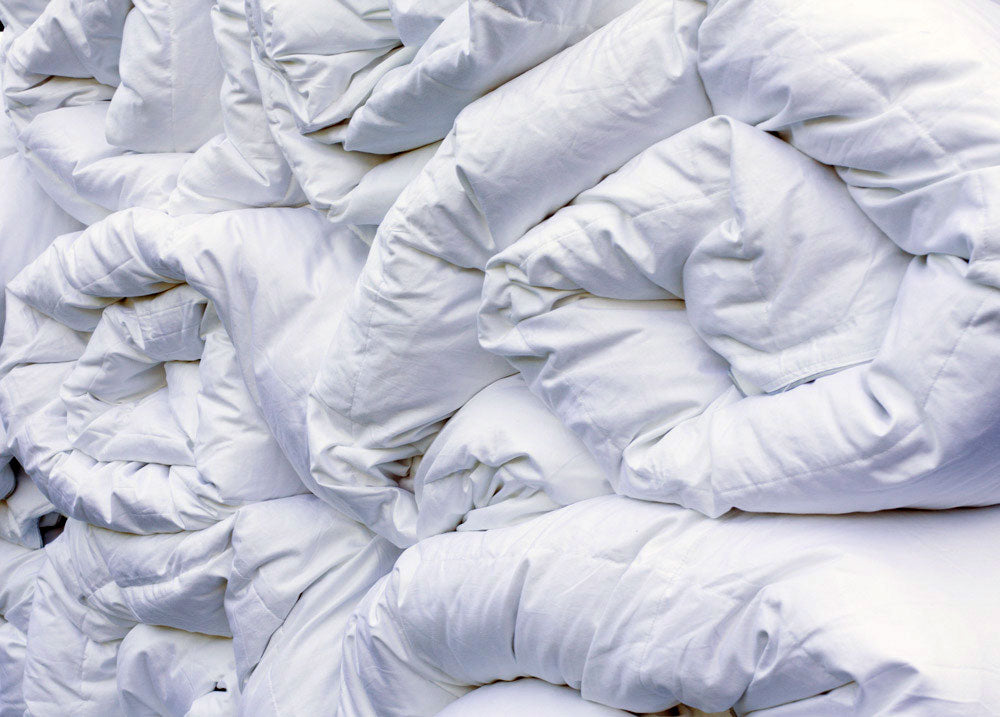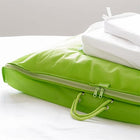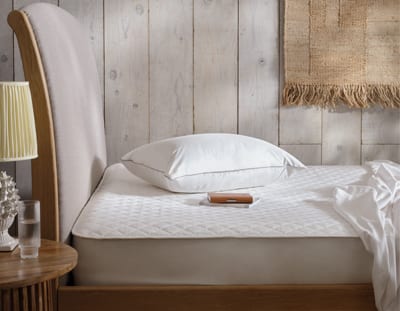
How to beat feeling tired this winter
We were wondering here at Scooms why we often feel more tired during the winter. Is it because it’s colder or because it’s darker? Do we need to get more sleep during the winter than we do in the summer? How can we avoid feeling extra sleepy in the winter? We really had no idea, so we did a little research....
Check out our comprehensive guide to everything you ever wanted to know about winter tiredness and fatigue! Plus, 5 top tips on how to beat winter tiredness:
- Why does cold weather make you feel tired?
- Do we sleep more in winter?
- How can I avoid sleepiness in winter?
- Is it just winter tiredness or fatigue or really a health condition?
- Winter depression / seasonal affective disorder (SAD)
- Chronic fatigue syndrome (CFS)
- Iron deficiency anaemia
- Five ways to stop feeling tired this winter
Why does cold weather make you feel tired?
We discovered that it’s not cold weather that makes you tired but getting less sunlight that makes you feel more tired during the autumn and winter months. This is because the days are shorter and more cloudy, and as it’s colder you spend less time outside in natural sunlight. When it’s darker our bodies produce more melatonin, the hormone that regulates sleep and wakefulness, so we feel more sleepy.
According to the Mayo Clinic, "the change in season can disrupt the balance of the body's level of melatonin, which plays a role in sleep patterns and mood."
Do we sleep more in winter?
Maybe! As our bodies are programmed to feel like sleeping when it’s dark, the fewer hours of daylight and greater hours of darkness in the winter do encourage us to sleep more. The Sleep Cycle app collects data on sleep patterns and this shows that people who live in areas with more sun typically sleep one hour less each night than people who live in places with longer periods of darkness.
However, the NHS says, “We don't actually require any more sleep in winter than we do in summer – aim for about eight hours of shut-eye a night, and try to go to bed and get up at the same time every day.”
So, the gist is that even though you may feel like sleeping more in the winter you don’t actually need to get more than your normal 8 hours.
How can I avoid sleepiness in winter?
Apparently, you can beat winter tiredness by making some simple changes to your daily routine:
- Spend more time in natural sunlight to prevent your body producing extra melatonin.
- Get a regular amount of quality sleep by aiming to go to bed and wake up at the same time each evening and morning.
- Keep exercising as it improves the quality of your sleep and can help to reduce that sleepy mid-afternoon feeling.
- Don’t over do starchy comforting food too close to bedtime, if you’re still digesting a big meal you won’t be able to get to sleep.
- Stress can make you feel fatigued so try reducing your stress levels through meditation, yoga, breathing exercises or mindfulness.
Is it just winter tiredness or really a health condition?
So, we’ve found out that it is quite normal to feel more tired during the winter but how do you know whether or not it’s something more serious than that?
It’s worth checking that you don’t actually have an underlying health condition, so we’ve listed some health conditions highlighted on the NHS website. If you think you have any of these, the NHS recommends going to see your GP:
Winter depression / seasonal affective disorder (SAD) - SAD is a type of depression that affects around 1 in 15 people. It seems to follow a seasonal pattern and although symptoms are generally worse during the winter, you can also be affected in the summer months. Although the cause of SAD isn’t fully understood, it is thought that a lack of sunlight prevents the hypothalamus in the brain from working as it should which could affect our bodies levels of melatonin or serotonin (the hormone that affects sleep, mood and appetite) or our circadian rhythm (internal clock). It could also be our genes, as SAD can often run in families.According to the NHS symptoms of SAD can be:
- a persistent low mood
- a loss of pleasure or interest in normal everyday activities
- irritability
- feelings of despair, guilt and worthlessness
- feeling lethargic (lacking in energy) and sleepy during the day
- sleeping for longer than normal and finding it hard to get up in the morning
- craving carbohydrates and gaining weight
There are treatments available if you are suffering from SAD so discuss these with your GP. Treatments include getting as much natural sunlight as possible, light therapy using a light box, counselling, cognitive behavioural therapy (CBT) or antidepressant medication.
Chronic fatigue syndrome (CFS) - Extreme tiredness is the most common symptom of CFS. It’s also known as ME - myalgic encephalomyelitis. It’s a long-term illness that can affect anyone, including children, although it’s more common in women, and usually develops between 25 and 45. The cause of CFS is unclear but the main theory is that it is triggered by an infection or an imbalance with the immune system or hormones. Over exercising seems to make symptoms worse.
According to the NHS, CFS can also cause:
- sleep problems
- muscle or joint pain
- headaches
- a sore throat or sore glands that aren't swollen
- problems thinking, remembering or concentrating
- flu-like symptoms
- feeling dizzy or sick
- fast or irregular heartbeats (heart palpitations)
Treatments vary depending on your symptoms but may include:
- cognitive behavioural therapy (CBT)
- a structured exercise programme called graded exercise therapy (GET)
- medication to control pain, nausea and sleeping problems
Anaemia - A lack of iron can cause Iron deficiency anaemia. Often this is because of blood loss or pregnancy. A simple blood test will confirm if you're anaemic. Your GP will normally recommend eating iron-rich foods - such as dark-leafy vegetables, iron fortified cereals and bread, meat and pulses - and taking iron tablets.
Symptoms can include:
- tiredness and lack of energy
- shortness of breath
- noticeable heartbeats (heart palpitations)
- pale skin
Long-term infection - your body might be still trying to clear and infection from your bloodstream. See your GP if you can’t shake it.
5 ways to stop feeling tired this winter
Beat winter tiredness and fatigue by following these top tips to stop you feeling tired this winter. We’ll be trying them here at Scooms!
1. Sunlight - Let in the sun! Spend as much time in natural daylight as you can:
- When you wake up open all your curtains or blinds.
- Walk to work or have a stroll during your lunch break.
- Sit or stand near the window when you can throughout the day.
2. Sleep - Don’t hibernate this winter! Make sure you get the right amount of sleep. Too much sleep might actually leave you feeling sluggish rather than bright eyed and bushy tailed! 8 hours sleep each night is what we should all be aiming for.
How to have a better night’s sleep:
- Don’t overheat your bedroom - your body temperature needs to slightly decrease before you can fall asleep so make sure your bedroom is around 18 - 20°C, not any hotter!
- Keep regular sleep patterns - try to go to bed and wake up at the same time every day.
- Turn off the screens - An hour before bedtime, dim the lights and turn off your devices. Bright light and blue light signal that it’s time to be awake and alert to our brains.
- Declutter your bedroom - Your bedroom should help you to feel sleepy by being a calm and unbusy environment.
- Get the right bedding - Having a comfortable duvet, pillow and bed linen will really aid a good night’s sleep. Scooms Hungarian goose down duvet and pillow and Egyptian cotton bed linen use the finest natural materials to provide bedding that is breathable, anti-allergen and temperature regulating.
See our guide on How to sleep well during the winter months
3. Exercise - Don’t let the cold or dark put you off exercising! It really will increase the quality of your sleep as well as your energy levels if you stay active during the winter months. Take a brisk walk outside during your lunch break or join a class or the gym if you want to stay inside. I’m loving my Zumba and Step classes! I feel much more energised when I’m sitting back at my desk in the Scooms office.
The NHS also states that ‘Exercise in the late afternoon may help to reduce early-evening fatigue and also improve your sleep.’
Apparently we need to get 150 minutes of exercise a week, which is only half an hour a day five times a week. Go on, you can do it! You'll feel much less groggy and tired in the mornings.
4. Eating - Eat right during the winter to keep up your energy levels and avoid the mid-afternoon tiredness slump and craving for sugar or carbs. Eat a healthy, balanced diet to avoid being either overweight or underweight. If you’re reaching for comfort foods try hearty winter soups, stews and casseroles made with loads of veg. But make sure you don’t eat them too close to bedtime so that your body isn't still working hard to digest your evening meal when it should be settling down to sleep.
We haven’t given up on cake here at Scooms. I love baking so that’s not going to happen! But I do reduce the amount of sugar in my recipes. I generally halve number of grams of sugar and always try to add no more than 100g of sugar to my sponge.
9 top tips on healthy eating:
- Base your meals on starchy carbohydrates - potatoes, bread, rice, pasta and cereals.
- Eat 5 portions of fruit and veg daily.
- Have 2 lots of fish each week - including 1 portion of oily fish like salmon or mackerel.
- Cut down on saturated fat - 30g a week for men and 20g a week for women.
- Reduce your sugar intake - like sugary fizzy drinks, alcoholic drinks, sugary breakfast cereals, cakes, biscuits and pastries.
- Eat less salt - 6g a day for adults; about a teaspoonful.
- Get active and be a healthy weight - Check whether you're a healthy weight: Healthy weight calculator.
- Drink 6 to 8 glasses of fluid a day - mostly water!
- Don't skip breakfast - research shows that people who regularly eat breakfast are less likely to be overweight and that it can also help improve your concentration and mental performance throughout the morning.
5. Stress - Another cause of tiredness that could become worse in the winter when the days are shorter and you feel that you need to get more done in a shorter time period.
It’s a busy time of year for me both work wise and personally. Not only is Christmas looming but my whole family has birthdays in the months running up to Christmas so there always seems to be something extra to organise!
So, if you are feeling stressed, the first thing to do is figure out why? Professor Cary Cooper, an occupational health expert at the University of Lancaster recommends “building emotional strength, being in control of your situation, having a good social network and adopting a positive outlook.”
Here are his top 10 stress-busting tips:
- Be active - exercise to reduce some of the emotional intensity of your feelings.
- Take control - empower yourself and try to sort things out.
- Connect with people - support from and time spent with friends, family and colleagues is invaluable. Talk!
- Me time - take regular time to do things you really enjoy.
- Challenge yourself - learn something new, achieve a goal to build your confidence.
- Avoid unhealthy habits - don’t use alcohol, smoking or caffeine as a crutch to cope.
- Help others - people who help others are more resilient, e.g. volunteering or community work.
- Manage your time better - prioritise your work so that you make a real difference.
- Try to be positive - look for the positives in life and things for which you're grateful.
- Accept the things you can't change - concentrate on the things you do have control over.








































